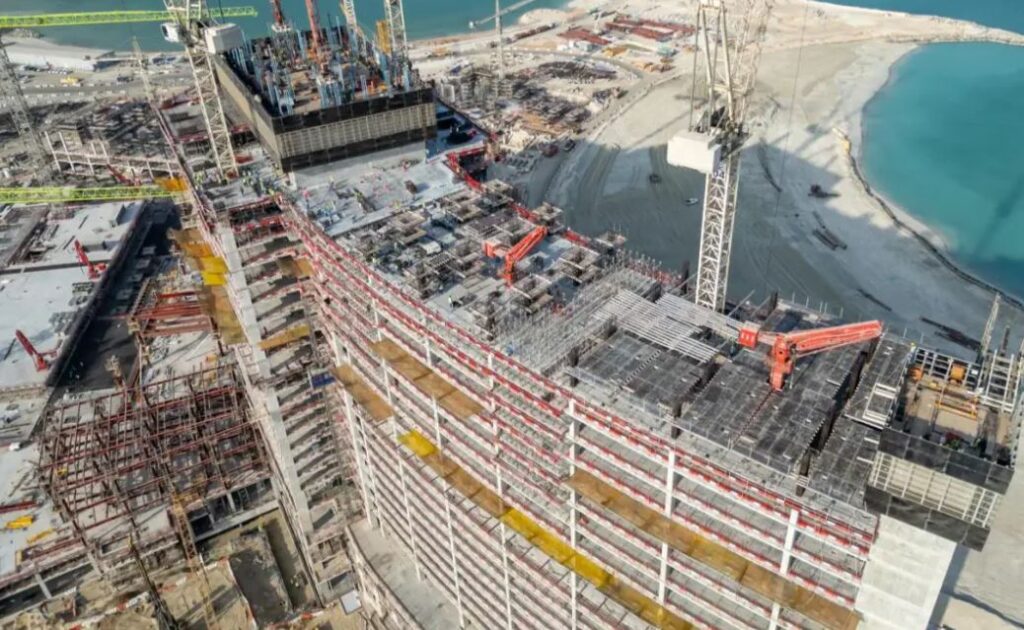- Media
How far can the UAE push modernisation without losing itself

To the casual passerby, it looks like another luxury hotel. But behind the fences, the UAE is rewriting its rulebook. This is the site where the Emirates is experimenting with legalised gambling, something previously unthinkable.
From prohibition to regulation
In a recent discussion with Richard Dennys, CEO of Game Lounge, Dr Joseph F Borg, a specialist in Gaming Law and blockchain, said, “If you’re a B2B looking to set up in the UAE, the first place to explore is Ras Al Khaimah, they’ve prepared best for this shift and are ready to support operators.”
When the General Commercial Gaming Regulatory Authority (GCGRA) was established in 2023, few realised quite how fast the country would move. Headed by former MGM Resorts CEO Jim Murren and ex-Macau regulator Kevin Mullally, the authority was tasked with doing what no Gulf nation had done before, bringing gaming out of the shadows and into a transparent, controlled framework.
Until then, all forms of gambling were banned under the penal code. Now, the GCGRA’s remit stretches across lottery, online gaming, sports wagering and land-based casinos. Its first action was to license The Game LLC to run the UAE Lottery, whose debut draw in late 2024 offered a staggering AED 100 million prize. The second was the landmark decision to grant Wynn Resorts the country’s first gaming licence for Al Marjan Island.
The UAE’s economy has been diversifying at breakneck speed, away from oil, towards tourism, luxury, and leisure. A gaming industry, carefully regulated, fits perfectly within that narrative.
Cultural gamble
Driving north to Ras Al Khaimah, it’s impossible not to think about the contradictions. This is a country where public drinking during Ramadan remains forbidden and traditional dress endures as a symbol of identity. Gambling, in contrast, is explicitly “haram” in Islam.
That contradiction lies at the heart of the UAE’s gamble. It has always managed reform through gradualism, easing rules on alcohol, cohabitation, and business ownership but never touching the religious nerve of gaming. Wynn Al Marjan, expected to open in 2027, changes that.
“Ras Al Khaimah is definitely the first mover. It has prepared itself better than any other emirate, even setting up a department within its tourism authority specifically focused on gambling.” noted Joseph Borg
Will Emiratis be allowed to gamble? Will online gaming be restricted to tourists? The answers are still unclear. The GCGRA’s yet-to-be-published framework is expected to impose strict limitations, perhaps mirroring Singapore’s or Monaco’s dual-market models, where locals face tighter restrictions than visitors.
Regional ripple effect

What happens in Ras Al Khaimah will not stay there. If Wynn succeeds and manages to blend luxury tourism with social restraint, the UAE could become the model for a region cautiously reconsidering its moral economies.
Saudi Arabia, deep into its Vision 2030 transformation, has hinted that entertainment, including gaming, could one day feature in NEOM, its futuristic megacity. Bahrain, historically more liberal, may also test the waters.
The UAE’s regulatory framework, meanwhile, is already attracting attention from global operators. Scientific Games, Novomatic and other industry suppliers have been awarded vendor licences, while the lottery’s data infrastructure remains firmly on UAE soil, signalling the government’s insistence on sovereignty and control.
Calibration, not liberalisation
It would be a mistake to see this as a headlong rush toward Las Vegas. What the UAE is doing is subtler, not a moral surrender, but an economic calibration. The country is crafting what might be called a “regulated gaming zone”: open to high-value tourism, fenced off from local vulnerabilities, and positioned as a revenue generator that doesn’t publicly challenge tradition.
There are risks, of course. A misstep could invite social backlash or damage the UAE’s carefully cultivated image as a modern yet respectful nation. But if the balance holds, it could redefine not just tourism, but the entire narrative of economic reform in the Gulf.
Wynn Al Marjan – a great experiment
For now, Wynn Al Marjan remains a construction site under heavy guard, the future still taking shape behind steel and glass. Yet the symbolism is unmistakable. The Emirates. once a federation of fishing villages and trade ports, is staking part of its identity on a bet that modernity and morality can coexist.
“The UAE and the wider GCC are shifting slowly and opening up to industries that weren’t there before. Things will be done gradually and in a very structured way – you have to be there for the long run.” explained Joseph F Borg. This is not merely a casino being built in Ras Al Khaimah. It’s a nation testing its limits, reshaping what is possible under the guise of progress.



